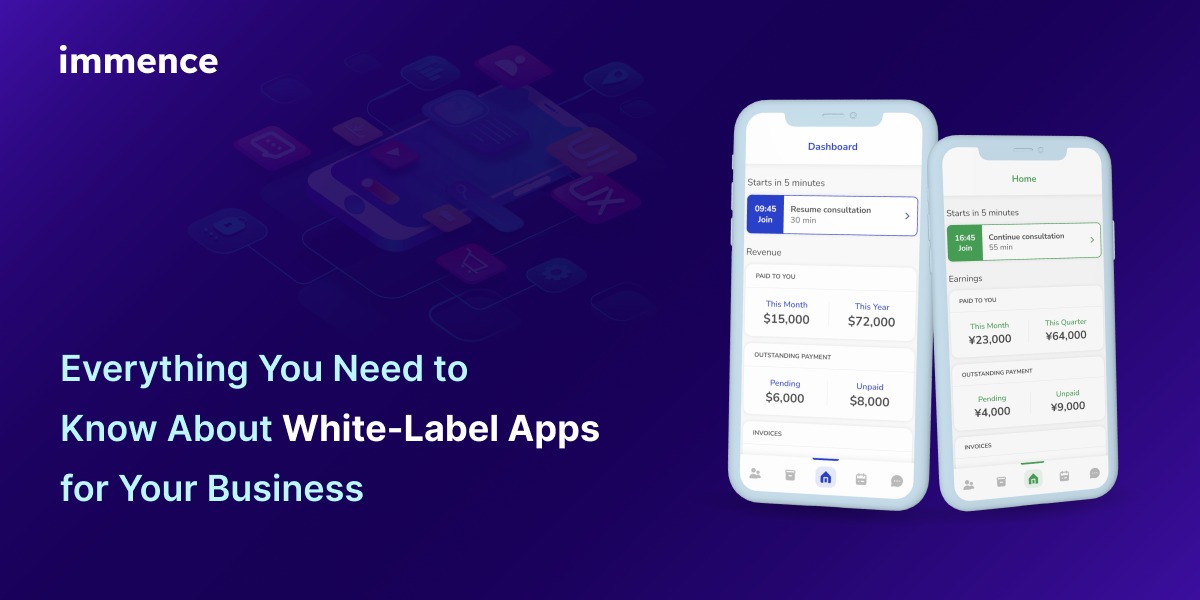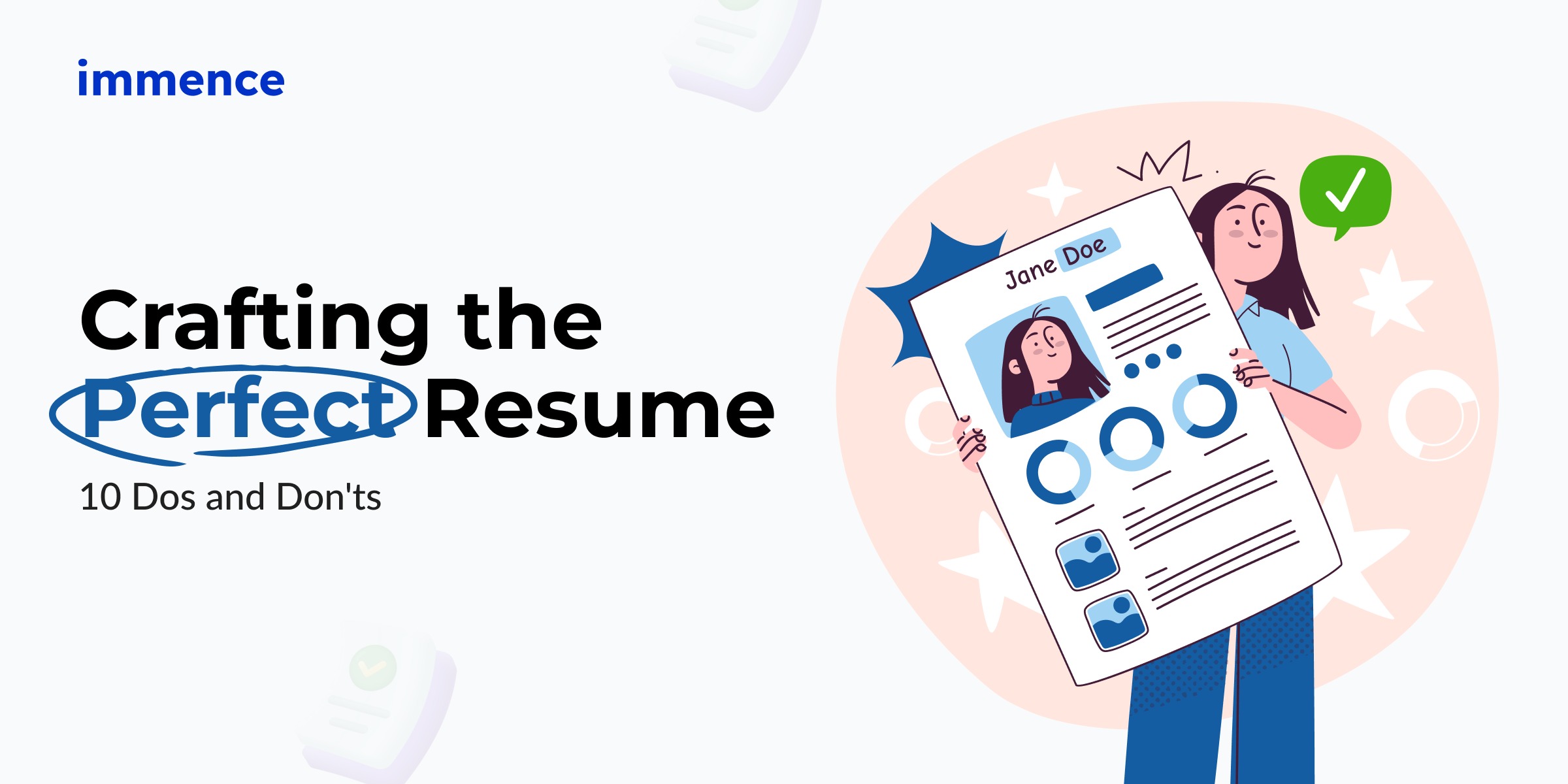Everything You Need to Know About White-Label Apps for Your Business

White-label app solutions are often used by businesses to obtain branded software without having to deal with the difficulties of custom app development. Small businesses can compete with larger companies by using white-label apps to make things equal.
This blog will explain a white-label app, discuss its benefits, and review some of its common challenges.
It will cover all you need to know about white-labeling, whether you're thinking about purchasing a white-label mobile app or simply want to learn more about what white-label goods can accomplish for your business.
White-label Apps: What Are They?
White-label apps are pieces of generic software that companies buy and then customize to meet their brand identities. White-label app development teams frequently develop an appropriate solutions for entire industries.
For instance, a white-label mobile app developer might construct a generic app framework for an application that allows patients to arrange appointments.
Instead of creating their own app and spending money and time on custom mobile app development, interested organizations or practitioners can purchase a generic white-label app and personalize the branding because patient/client booking apps frequently need the same functionalities.
Companies that develop white-label mobile apps can also make more money by offering the same service to numerous companies.
Some corporations might even think about investing in white-label apps with the specific purpose of reselling them to other interested enterprises.
There are typically two ways to sell white-label apps. Frontend and backend code is the most typical method used by white-label services to market these mobile applications. Customers of these mobile apps for business have little customization or scaling choices.
White label service providers further sell goods with merely backend code. Companies that buy this product will need to have the front-end code developed as a custom app.
The latter approach gives businesses more flexibility over User Interface design, even though it isn't entirely white label.
How do white-label apps and custom mobile apps differ from one another?
There is a lot of misunderstanding around the definition of a white-label mobile app and how it varies from a custom mobile app. Let's start with what they both have in common to explain the differences: they were both created with your business and audience in mind.
White-label and custom apps are created to simplify your consumers' lives. They make it simple for customers to research your company, find out more about the goods and services you provide, make purchases, and address issues. Let's now discuss what makes them unique.
The key distinction between white-label and custom mobile apps is that the former can be branded and personalized, whereas the second is created exclusively for your business.
White-label apps are created in a way that makes it simple for you to brand and customize them. You may alter the colors, logos, and other design aspects to make the apps stand out as being only yours. Custom applications cannot be branded or changed in appearance without making significant changes to the app's source code because they are created particularly to meet the demands of your business.
The advantages and limitations of purchasing a White label application
Advantages:
- Cost
Cost-effectiveness is the key factor that influences whether businesses adopt white-label mobile apps or software. Compared to custom creation, buying a white-label mobile app is far more affordable.
Mobile application development takes time and money. You'll need to assemble a team of programmers, designers, product managers, QA testers, etc. within your company.
Your organization might potentially contract out development to a company that creates mobile apps. This strategy still necessitates pricey market research, design, development, and testing.
The most economical choice for companies with limited resources is a white-label solution. Your business just has to cover a small portion of this expense as compared to covering the cost of the complete development process.
- Prepared to Launch
White-label apps are typically chosen by businesses to reduce costs, but they can also save your company a lot of time.
It frequently takes months or even a year to finish the development process. But, after a brief period of customization, firms that buy a white-label app can swiftly launch their product.
In business, the first mover occasionally enjoys an insurmountable competitive edge. White-label apps offer significant advantages to business owners who wish to launch their products quickly, in addition to cost savings.
- Maintenance responsibility
White-label apps are often serviced and updated by the business that sold them. This has a big benefit for your business. You won't need to stress about correcting mistakes or making sure a regular maintenance program is followed.
Normally, all you need to do is report a bug or problem to the provider, who will take care of it for your company.
Your company will be liable for maintaining the custom software in addition to the time and money it takes to develop it. A crucial and continuous component of app development is maintenance.
As a result, as long as the software is in use, your company will continue to invest time and money.
Limitations:
- Very Little Customizing
Limited customization is the main issue organizations have with white-label items. The few customization possibilities can make it challenging to convey your company's corporate identity.
Also, your company won't be able to add features that aren't already included in the app. These solutions are made to be broadly usable throughout an entire sector or use case. As a result, your company might not be able to obtain all the features it desires.
- Restricted Source Code Access
Your company will have little to no access to the white-label application's source code. The problem with this is that your company cannot be guaranteed the strength of the source code or the security of its user data.
One is that you can't be sure that user data from your app isn't being gathered and sold to outside parties. Also, your reputation may suffer if there is a security breach or a loss of client data, but your company will be unable to stop it.
- A Challenge to Scale
It is challenging to predict when user demand will spike. White-label goods are not very scalable. Change requests can be made to the provider, but they might not be able to comply.
Custom development will probably be the preferable choice for your company if you need to scale up quickly.
The advantages and limitations of White label app development
Advantages:
- Increasing Scalability
White labeling your software makes it simpler to scale your business because you are not restricted to a specific customer or market. You can boost your clientele and earnings as your app becomes more popular.
- A one-time investment is possible
It is significantly less expensive to create a single application that serves the requirements of many different firms than it is to develop individual solutions for each one. White labeling is all about finding many markets for a single concept.
- Brand recognition
As more people use your app, brand awareness and recognition will likely rise. Increased downloads and revenue potential may result from this.
- Reduced marketing expenses
By white labeling your app, you can cut your marketing expenses because your clients will be in charge of spreading the word about it to their clientele.
- Competitive advantage
By providing a white-labeled app, you can provide your clients an edge over their rivals. Long-lasting commercial relationships and greater loyalty may result from this.
- Numerous revenue streams
By giving your app a white label, you may give it to a variety of clients who can use it for their companies. This opens up the option of making money through many means, such as licensing fees, subscriptions, or transactional commissions.
Limitations:
- Lack of customization
The key issue is that white labeling typically suggests that the purchaser lacks access to the application's backend. This results in little to no customization and scaling flexibility, to say nothing of a lack of security control.
Therefore, it seems sensible that the chance of a customer leaving white labeling increases as they can afford custom web development.
Fortunately, you can reduce the possibility of losing your relationships. You must learn how to adjust your white-label application to meet the present and prospective business needs of potential customers. Also, you can get assistance from a seasoned software development company like Immence.
How to select a white-label application development company?
Similar to how you would choose a software development team to outsource any other project type, picking a white-label development company is a relatively simple task. It's important to take the vendor's experience, knowledge, pricing, communication style, references, cultural fit, or whatever else your outsourcing plan calls for, into account. Nevertheless, there is one difference: your prospective partner needs to have a track record of developing white-label products in your industry. Thus, ensure that they:
- Know your target market. Most white-label apps target an entire segment rather than a specific customer. Do you require a white-label financial platform or a mobile app for a hospital? These two cater to entirely different clientele. Thus, ensure that your prospective development partner is familiar with and keeps up with the preferences of your end consumers (which surely tend to change with time).
- Understand your competitors. White-label applications are usually unattractive since they are generic. Make sure your outsourcing candidate is aware of the rivals in your market and understands how to set their offering apart. For instance, a white-label social network app should be distinct from Facebook or Instagram if you require one. If not, your project won't stand a very good chance of surviving.
- Know how to use technology. White-label app architecture is different from the design of other solution types since white labeling sometimes entails making one solution accessible to numerous buyers using the same cloud. Look for a development partner who specializes in creating programs that can be securely distributed among many users.
- Understand how to modify your solution. Often, spam applications are rejected by app stores. This means that your apps' ability to be customized should go beyond simply altering the colors and branding. Choose a provider who can customize applications to your white-label partners' demands.
Summary
The most effective approach for getting into the app market appears to be through white labeling. Yes, it is, but if you use the incorrect product development strategy, you run the serious risk of losing your white-label partners very quickly. The fundamental issue is that the majority of white-label solutions have certain restrictions, such as a lack of flexibility and scalability.
But, you can create distinctive, adaptable, and secure apps with a reputable white-label software development vendor, Immence. This is how you can advance white labeling.
So, with this, we hope that this blog would have given a detailed idea of whether you should go with a custom or white-label app development solution. We are here to assist you with any of the app development solutions that would lead your business to grow in this competitive world. Just fill out a brief contact form to get in touch with us.
Shreya Viradiya
Business Development Executive


